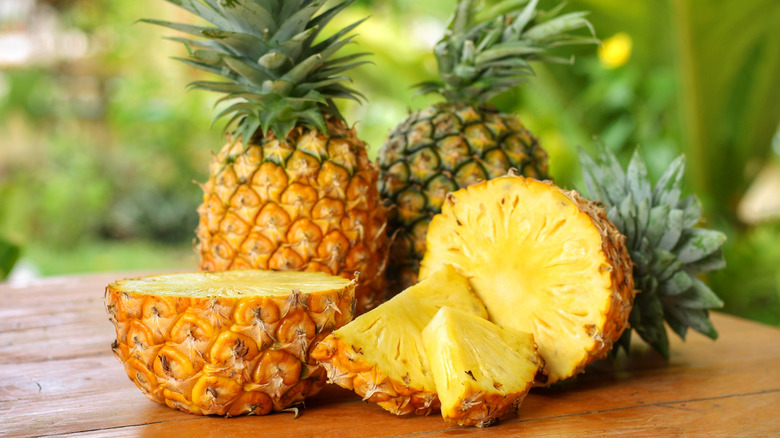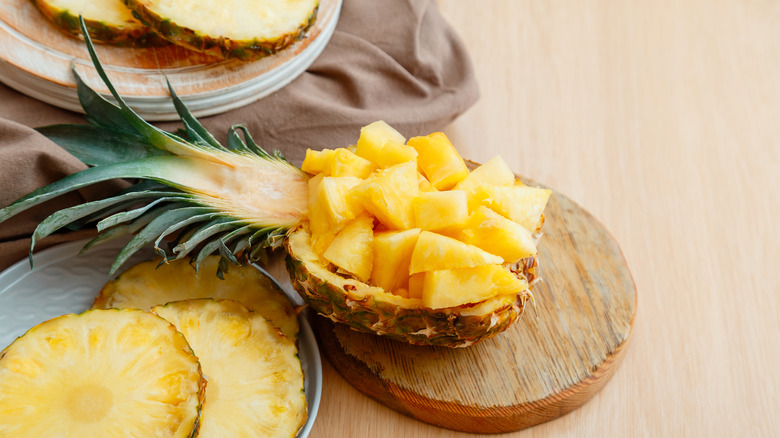This Is What Happens When You Eat Too Much Pineapple
Many people enjoy eating pineapple for its sweet and tangy flavor. This tropical treat can be eaten raw or blended into smoothies and drinks. But eating too much pineapple can cause adverse side effects that you wouldn't notice with other fruits. Have you ever noticed that your tongue feels strange after eating a lot of pineapple? This is because of an enzyme called bromelain that contains tenderizing properties (via Livestrong). Bromelain can irritate your mouth and stomach if you eat too much.
"Because pineapple is a great meat tenderizer, eating too much can result in tenderness of the mouth, including the lips, tongue, and cheeks," San Diego-based nutritionist Laura Flores told Live Science. "But, [it] should resolve itself within a few hours." Too much bromelain can also cause rashes, vomiting, and diarrhea. It may also interact with certain medications including antibiotics, anticoagulants, blood thinners, barbiturates, and others. If you experience any adverse reactions after eating pineapple that don't subside within a few hours, seek emergency medical care.
Pineapple is good for you in small amounts
Pineapple contains many vitamins and minerals. But even these nutrients should be consumed in moderation. "Because of the high amount of vitamin C that pineapples contain, consuming large quantities may induce diarrhea, nausea, vomiting, abdominal pain, or heartburn," Flores told Live Science.
However, pineapple is a great addition to your diet if you eat it sparingly. In addition to being rich in vitamin C, this fruit is a good source of thiamin, vitamin B6, folate, manganese, and potassium (via Medical News Today). These vitamins and minerals can help reduce the risk of developing high blood pressure, diabetes, and certain cancers. Because pineapples are high in fiber and water, eating them can aid digestion. Bromelain can also help with digestion by helping the body break down food more easily.
Underripe pineapples are toxic to humans, so it is important that you pick a ripe fruit in order to enjoy it raw. Choose a fruit with vibrant green leaves, which indicates it is healthy. Underripe pineapples will feel rock hard if you squeeze them, so choose one that gives a little when pressed. A ripe pineapple will also smell sweet, especially near the bottom of the fruit.


